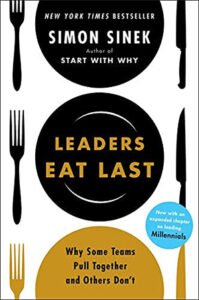|
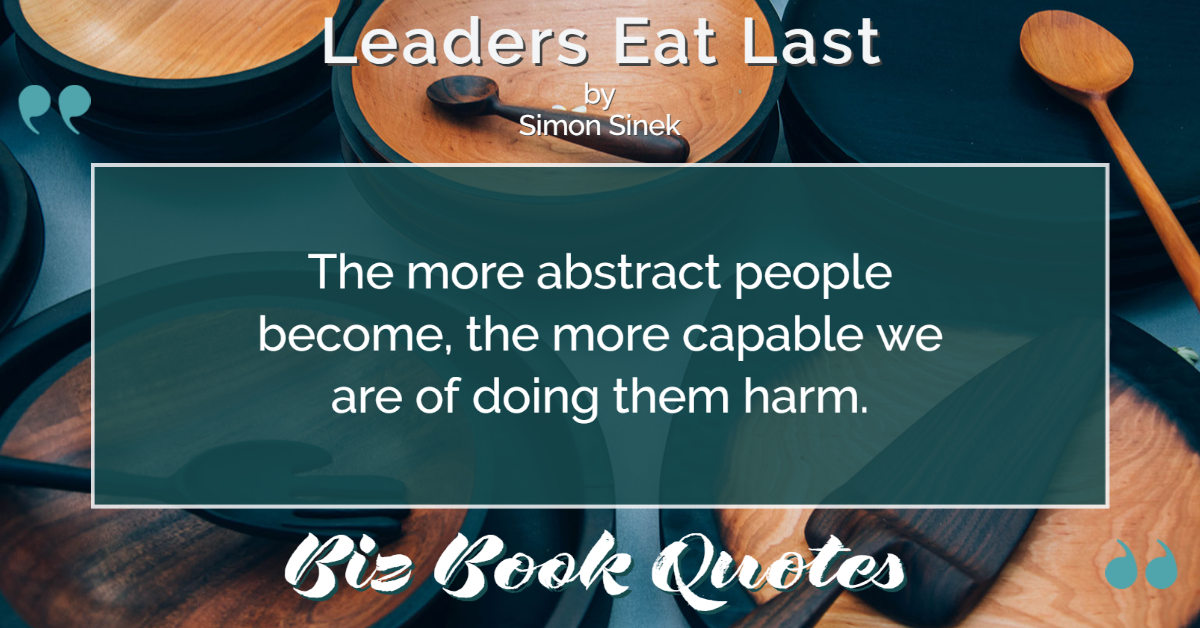
|
Leaders Eat Last:
The more abstract people become, the more capable we are of doing them harm.
|
127 |
|
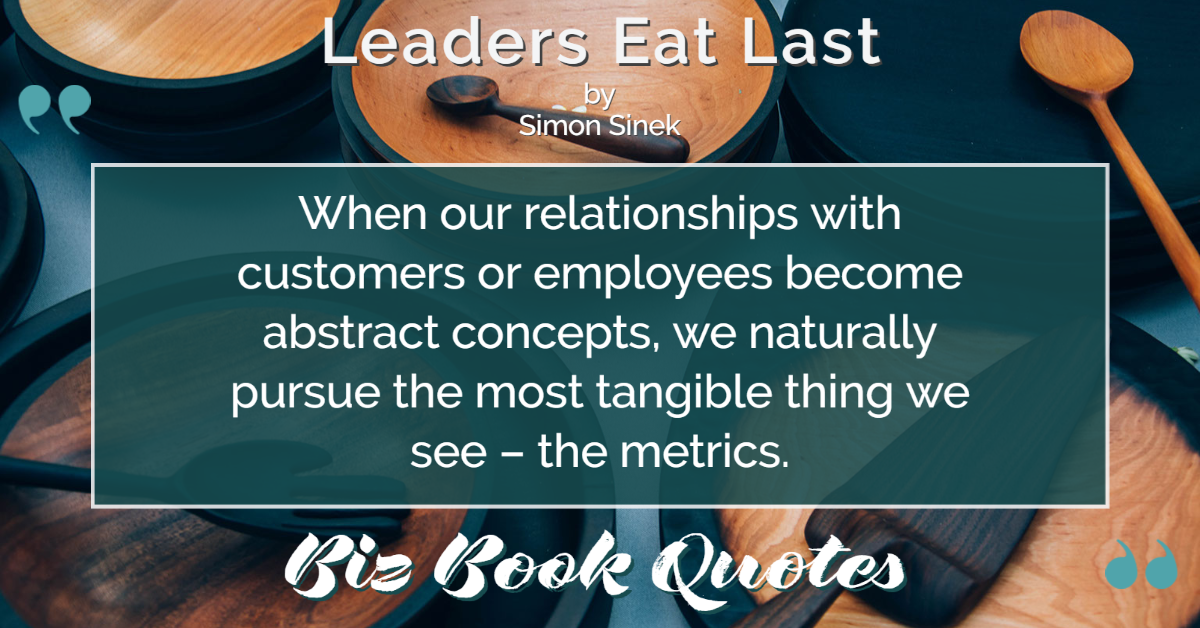
|
Leaders Eat Last:
When our relationships with customers or employees become abstract concepts, we naturally pursue the most tangible thing we see – the metrics.
|
129 |
|
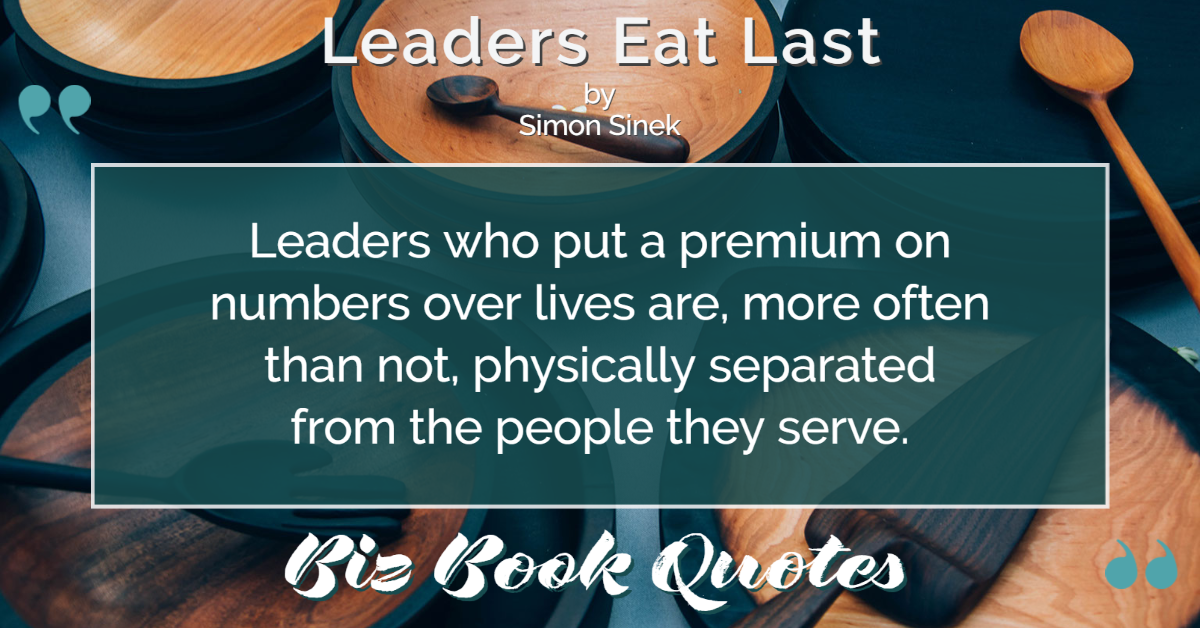
|
Leaders Eat Last:
Leaders who put a premium on numbers over lives are, more often than not, physically separated from the people they serve.
|
129 |
|
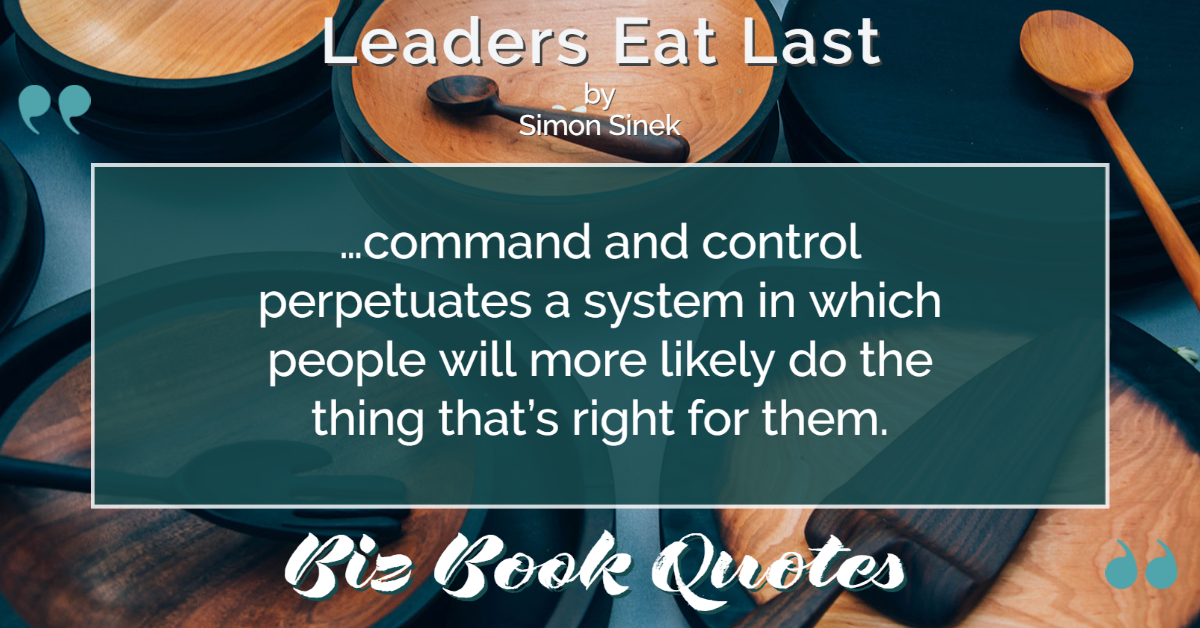
|
Leaders Eat Last:
…command and control perpetuates a system in which people will more likely do the thing that’s right for them.
|
129 |
|
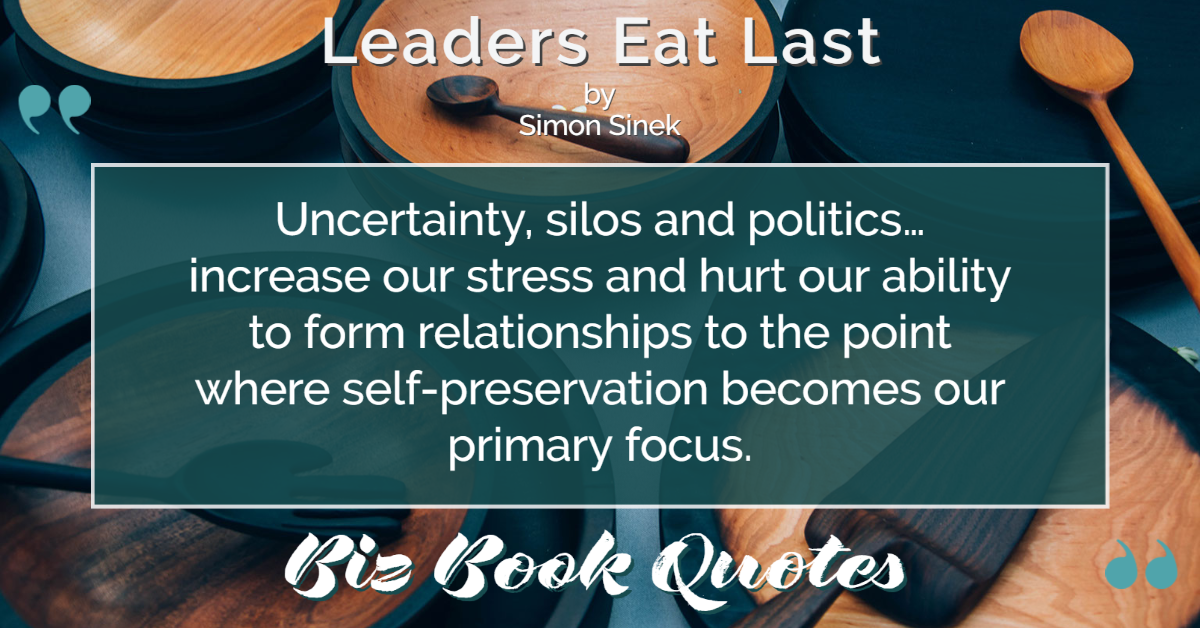
|
Leaders Eat Last:
Uncertainty, silos and politics… increase our stress and hurt our ability to form relationships to the point where self-preservation becomes our primary focus.
|
129 |
|
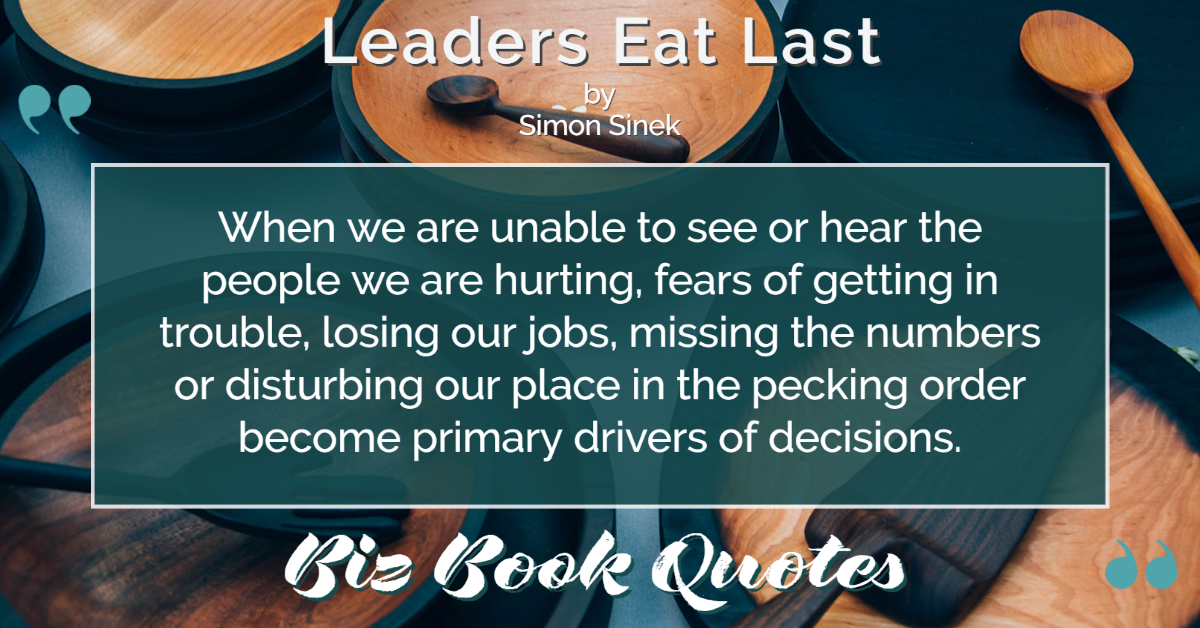
|
Leaders Eat Last:
When we are unable to see or hear the people we are hurting, fears of getting in trouble, losing our jobs, missing the numbers or disturbing our place in the pecking order become primary drivers of decisions.
|
129 |
|

|
Leaders Eat Last:
When we are unable to see or hear the people we are hurting, fears of getting in trouble, losing our jobs, missing the numbers or disturbing our place in the pecking order become primary drivers of decisions.
|
129 |
|
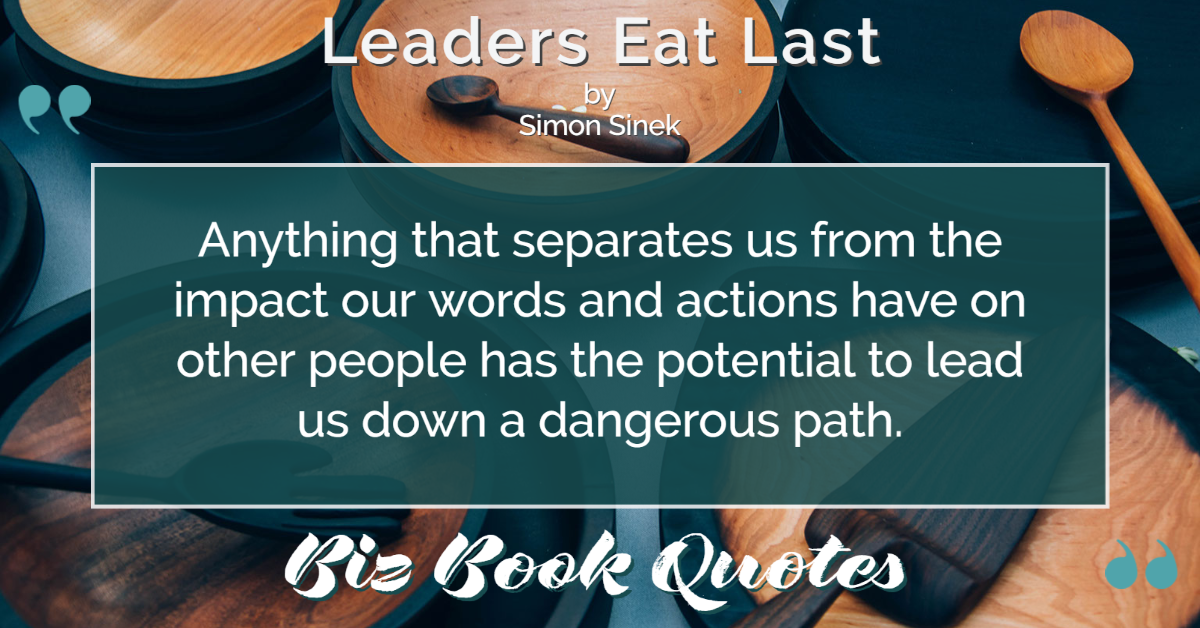
|
Leaders Eat Last:
Anything that separates us from the impact our words and actions have on other people has the potential to lead us down a dangerous path.
|
129 |
|
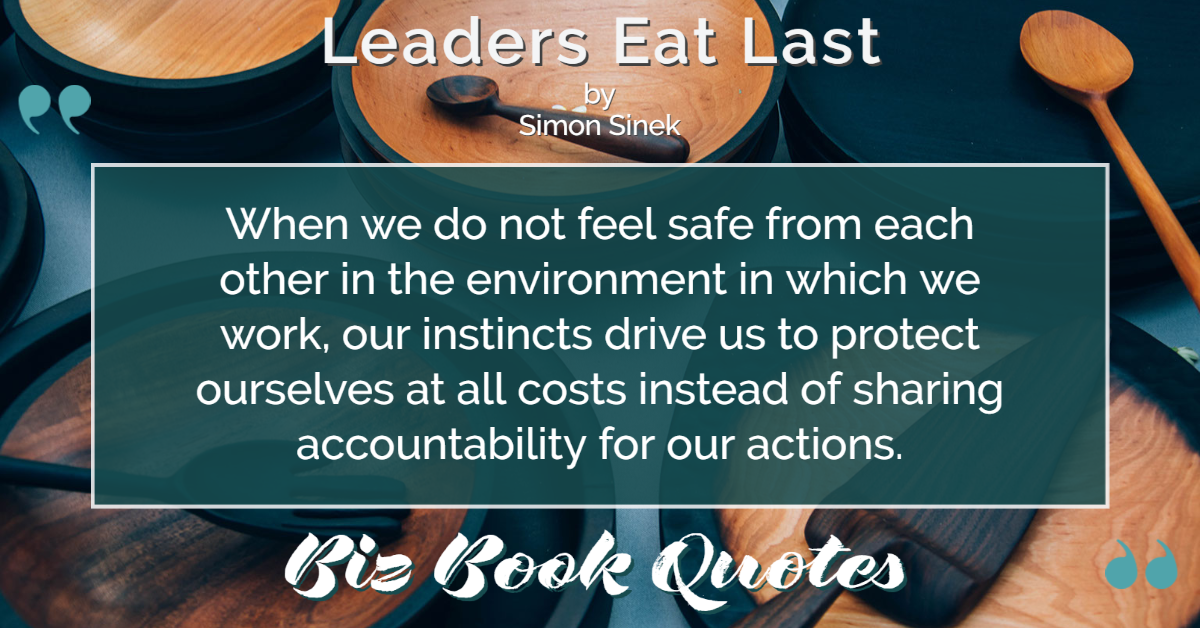
|
Leaders Eat Last:
When we do not feel safe from each other in the environment in which we work, our instincts drive us to protect ourselves at all costs instead of sharing accountability for our actions.
|
130 |
|
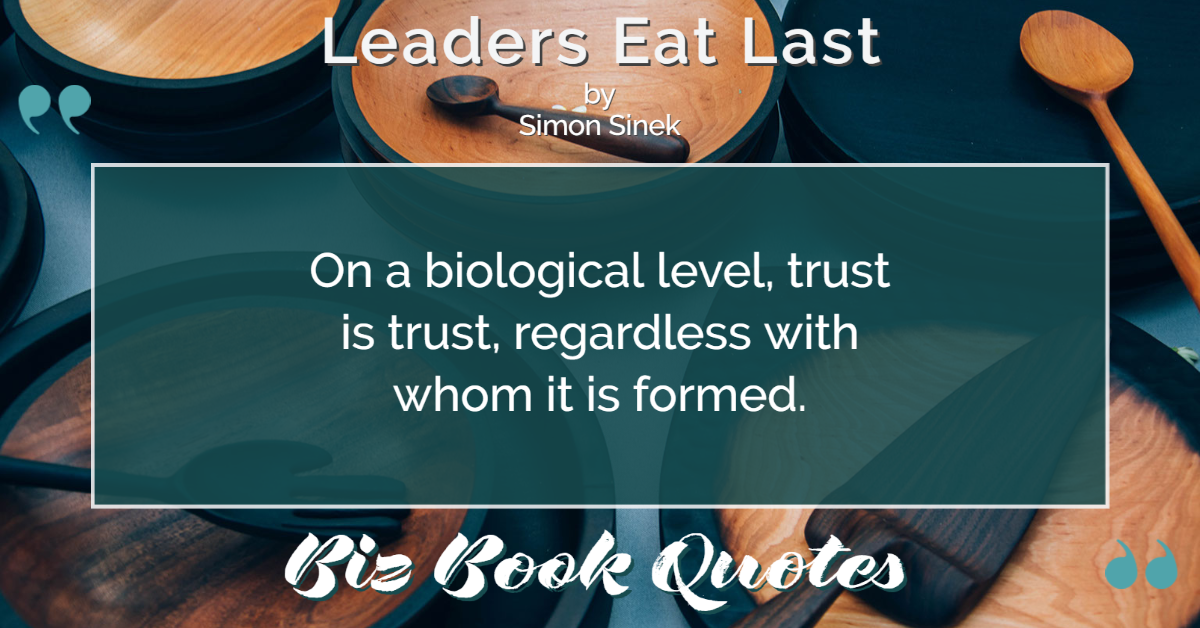
|
Leaders Eat Last:
On a biological level, trust is trust, regardless with whom it is formed.
|
131 |
